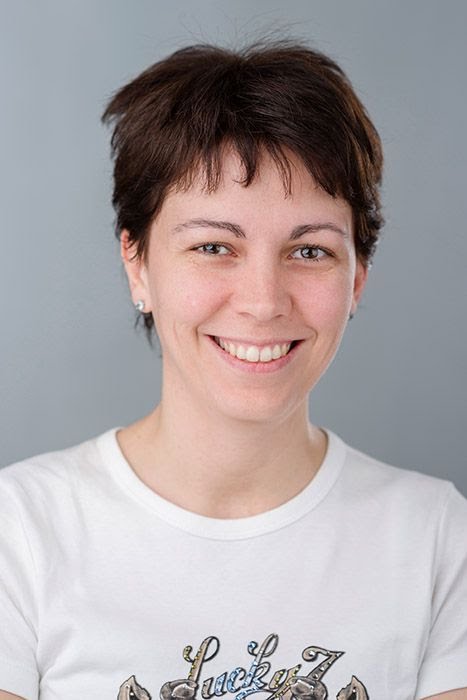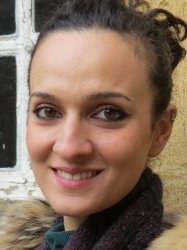Studiare
In questa sezione è possibile reperire le informazioni riguardanti l'organizzazione pratica del corso, lo svolgimento delle attività didattiche, le opportunità formative e i contatti utili durante tutto il percorso di studi, fino al conseguimento del titolo finale.
Calendario accademico
Il calendario accademico riporta le scadenze, gli adempimenti e i periodi rilevanti per la componente studentesca, personale docente e personale dell'Università. Sono inoltre indicate le festività e le chiusure ufficiali dell'Ateneo.
L’anno accademico inizia il 1° ottobre e termina il 30 settembre dell'anno successivo.
Calendario didattico
Il calendario didattico indica i periodi di svolgimento delle attività formative, di sessioni d'esami, di laurea e di chiusura per le festività.
| Periodo | Dal | Al |
|---|---|---|
| primo semestre magistrali | 30-set-2019 | 20-dic-2019 |
| secondo semestre magistrali | 24-feb-2020 | 29-mag-2020 |
| Sessione | Dal | Al |
|---|---|---|
| Sessione invernale magistrali | 7-gen-2020 | 21-feb-2020 |
| Sessione estiva magistrali | 3-giu-2020 | 10-lug-2020 |
| Sessione autunnale | 24-ago-2020 | 11-set-2020 |
| Sessione | Dal | Al |
|---|---|---|
| Lauree sessione autunnale (validità a.a. 2018/19) | 2-dic-2019 | 4-dic-2019 |
| Lauree sessione invernale (validità a.a. 2018/19) | 7-apr-2020 | 9-apr-2020 |
| Lauree sessione estiva (validità a.a. 2019/20) | 7-set-2020 | 9-set-2020 |
Calendario esami
Gli appelli d'esame sono gestiti dalla Unità Operativa Segreteria dei Corsi di Studio Economia.
Per consultazione e iscrizione agli appelli d'esame visita il sistema ESSE3.
Per problemi inerenti allo smarrimento della password di accesso ai servizi on-line si prega di rivolgersi al supporto informatico della Scuola o al servizio recupero credenziali
Docenti
 marcella.veronesi@univr.it
marcella.veronesi@univr.it
Piano Didattico
Il piano didattico è l'elenco degli insegnamenti e delle altre attività formative che devono essere sostenute nel corso della propria carriera universitaria.
Selezionare il piano didattico in base all'anno accademico di iscrizione.
1° Anno
| Insegnamenti | Crediti | TAF | SSD |
|---|
2° Anno Attivato nell'A.A. 2020/2021
| Insegnamenti | Crediti | TAF | SSD |
|---|
2 courses to be chosen among the following2 courses to be chosen among the following| Insegnamenti | Crediti | TAF | SSD |
|---|
| Insegnamenti | Crediti | TAF | SSD |
|---|
2 courses to be chosen among the following2 courses to be chosen among the following| Insegnamenti | Crediti | TAF | SSD |
|---|
Legenda | Tipo Attività Formativa (TAF)
TAF (Tipologia Attività Formativa) Tutti gli insegnamenti e le attività sono classificate in diversi tipi di attività formativa, indicati da una lettera.
Public sector economics (2019/2020)
Codice insegnamento
4S02463
Docenti
Coordinatore
Crediti
9
Lingua di erogazione
Inglese
Settore Scientifico Disciplinare (SSD)
SECS-P/03 - SCIENZA DELLE FINANZE
Periodo
secondo semestre magistrali dal 24-feb-2020 al 29-mag-2020.
Obiettivi formativi
The course covers the main contemporary issues in public finance and public economics. It is aimed at allowing students to read and understand the theoretical and empirical literature (both academic and policy-oriented) as well as to implement their own research. Reference is also made to main institutional aspects at the national and, where relevant, international level. Students will develop a sound knowledge of concepts and phenomena related to public finance and public intervention in the economy with special reference to: social security, taxation and investment/financial decisions; taxation and labor supply; public debt; market regulation; market auctions. Students will be able to assess critically the economic and social implications of the main public intervention schemes. Students will be also introduced to the use of scientific software to simulate the impact of public policies on individual behavior.
Programma
Main Subjects
- Taxation: impact on investment decisions and labor supply; choice of the tax base.
- Social security: impact on investment decisions and labor supply; pension reforms in an ageing society.
- Public debt: macroeconomic effects, sustainability.
- Imperfect Competition, Market Regulation and Regulatory Reforms; Auctions and Procurement.
During the course, it will be shown how to simulate economic models in order to assess quantitatively the impact of public policies.
The course will be integrated by invited lectures held by international professors on specific topics related to the subjects of the course.
Textbooks and references
For each topic students will refer to a selected bibliography which will be given at the beginning of the course.
Lecture notes, scientific papers and some chapters of the textbooks listed below will be the main references.
Selected teaching material will be made available on the e-learning web page.
| Autore | Titolo | Casa editrice | Anno | ISBN | Note |
|---|---|---|---|---|---|
| Church J., Ware R. | Industrial organization a strategic approach | Mc Graw Hill | 2000 | 0071166459 | |
| J. Hindriks and G. D. Myles | Intermediate Public Economics | MIT Press | 2006 | 0262083442 |
Modalità d'esame
The exam is written. This exam will test for: (a) the understanding of the theoretical tools (concepts and formal models) presented in the course, (b) knowledge of the relevant quantitative evidence (c) ability to use theoretical tools and quantitative evidence to critically discuss the impact of government intervention.
Accordingly, during the exam, candidates are expected to solve problems and\or write short essays on specific topics.
Moreover, candidates are given the opportunity to solve an homework assigned by the istructor during the lectures and\or prepare an essay on a topic assigned by the instructor on a specific issue related to the course.
The homework and the essay assessments will be part of the final evaluation.
Tipologia di Attività formativa D e F
Nei piani didattici di ciascun Corso di studio è previsto l’obbligo di conseguire un certo numero di crediti formativi mediante attività a scelta (chiamate anche "di tipologia D e F").
Oltre che in insegnamenti previsti nei piani didattici di altri corsi di studio e in certificazioni linguistiche o informatiche secondo quanto specificato nei regolamenti di ciascun corso, tali attività possono consistere anche in iniziative extracurriculari di contenuto vario, quali ad esempio la partecipazione a un seminario o a un ciclo di seminari, la frequenza di laboratori didattici, lo svolgimento di project work, stage aggiuntivo, eccetera.
Come per ogni altra attività a scelta, è necessario che anche queste non costituiscano un duplicato di conoscenze e competenze già acquisite dallo studente.
Quelle elencate in questa pagina sono le iniziative extracurriculari che sono state approvate dal Consiglio della Scuola di Economia e Management e quindi consentono a chi vi partecipa l'acquisizione dei CFU specificati, alle condizioni riportate nelle pagine di dettaglio di ciascuna iniziativa.
Si ricorda in proposito che:
- tutte queste iniziative richiedono, per l'acquisizione dei relativi CFU, il superamento di una prova di verifica delle competenze acquisite, secondo le indicazioni contenute nella sezione "Modalità d'esame" della singola attività;
- lo studente è tenuto a inserire nel proprio piano degli studi l'attività prescelta e a iscriversi all'appello appositamente creato per la verbalizzazione, la cui data viene stabilita dal docente di riferimento e pubblicata nella sezione "Modalità d'esame" della singola attività.
ATTENZIONE: Per essere ammessi a sostenere una qualsiasi attività didattica, inlcuse quelle a scelta, è necessario essere iscritti all'anno di corso in cui essa viene offerta. Si raccomanda, pertanto, ai laureandi delle sessioni di dicembre e aprile di NON svolgere attività extracurriculari del nuovo anno accademico, cui loro non risultano iscritti, essendo tali sessioni di laurea con validità riferita all'anno accademico precedente. Quindi, per attività svolte in un anno accademico cui non si è iscritti, non si potrà dar luogo a riconoscimento di CFU.
Documenti e avvisi
-
 Descrizione del percorso di formazione - Regolamento didattico
(pdf, it, 479 KB, 22/04/21)
Descrizione del percorso di formazione - Regolamento didattico
(pdf, it, 479 KB, 22/04/21)
| anni | Insegnamenti | TAF | Docente |
|---|---|---|---|
| 1° 2° | Enactus Verona - 2019/20 | D |
Paola Signori
(Coordinatore)
|
| 1° 2° | Public speaking and economic writing - 2019/20 | D |
Martina Menon
(Coordinatore)
|
| 1° 2° | Samsung Innovation Camp - 2019/20 | D |
Marco Minozzo
(Coordinatore)
|
| 1° 2° | Simulazione di politiche economiche - 2019/20 | D |
Federico Perali
(Coordinatore)
|
| anni | Insegnamenti | TAF | Docente |
|---|---|---|---|
| 1° 2° | Predictive analytics for business decisions - 2019/20 | D |
Claudio Zoli
(Coordinatore)
|
| 1° 2° | Professional communication for economics - 2019/20 | D |
Claudio Zoli
(Coordinatore)
|
| 1° 2° | Public speaking and economic writing - 2019/20 | D |
Martina Menon
(Coordinatore)
|
| 1° 2° | Regulation, procurement and competition - 2019/20 | D |
Claudio Zoli
(Coordinatore)
|
| 1° 2° | Simulazione di politiche economiche - 2019/20 | D |
Federico Perali
(Coordinatore)
|
Prospettive
Avvisi degli insegnamenti e del corso di studio
Per la comunità studentesca
Se sei già iscritta/o a un corso di studio, puoi consultare tutti gli avvisi relativi al tuo corso di studi nella tua area riservata MyUnivr.
In questo portale potrai visualizzare informazioni, risorse e servizi utili che riguardano la tua carriera universitaria (libretto online, gestione della carriera Esse3, corsi e-learning, email istituzionale, modulistica di segreteria, procedure amministrative, ecc.).
Entra in MyUnivr con le tue credenziali GIA: solo così potrai ricevere notifica di tutti gli avvisi dei tuoi docenti e della tua segreteria via mail e anche tramite l'app Univr.
Esercitazioni Linguistiche CLA
Gestione carriere
Area riservata studenti
Prova finale
La prova finale consiste in un elaborato in forma scritta di almeno 80 cartelle, che approfondisce un tema a scelta relativo a uno degli insegnamenti previsti dal piano didattico dello studente. Il tema e il titolo dell’elaborato dovranno essere selezionati in accordo con un docente dell’Ateneo di un SSD fra quelli presenti nel piano didattico dello studente. Il lavoro deve essere sviluppato sotto la guida del docente. La tesi è oggetto di esposizione e discussione orale, in una delle date appositamente stabilite dal calendario delle attività didattiche, dinanzi a una Commissione di Laurea nominata ai sensi del RDA. In accordo con il Relatore, la tesi potrà essere redatta e la discussione potrà svolgersi in lingua inglese.
Per maggiori informazioni e la consultazione delle scadenze e delle commissioni di laurea si rimanda all'apposita sezione dei Servizi di Segreteria studenti.
Elenco delle proposte di tesi
| Proposte di tesi | Area di ricerca |
|---|---|
| La (cattiva) gestione dei fondi comunitari in Italia | ECONOMICS - ECONOMICS |
| PMI (SMES) and financial performance | MANAGEMENT OF ENTERPRISES - MANAGEMENT OF ENTERPRISES |
| Analisi dell'Impatto della Regolamentazione: potenziale e applicazioni concrete | Argomenti vari |
| Costi e benefici della nuova linea ferroviaria Torino-Lione | Argomenti vari |
| Costi e benefici del sistema di rilevazione della velocità “tutor” sulle autostrade italiane | Argomenti vari |
| La stima del valore della qualità delle strutture ospedaliere attraverso la valutazione contingente | Argomenti vari |
| La valutazione dell’impatto occupazionale dei grandi progetti | Argomenti vari |
Tirocini e stage
Nel piano didattico dei Corsi di Laurea triennale (CdL) e Magistrale (CdLM) di area economica è previsto uno stage come attività formativa obbligatoria. Lo stage, infatti, è ritenuto uno strumento appropriato per acquisire competenze e abilità professionali e per agevolare la scelta dello sbocco professionale futuro, in linea con le proprie aspettative, attitudini e aspirazioni. Attraverso l’esperienza pratica in ambiente lavorativo, lo studente può acquisire ulteriori competenze ed abilità relazionali.
Per informazioni specifiche, consultare il servizio di Segreteria studenti appositamente dedicato a Stage.
Modalità iscrizioni
FASE 1: PREIMMATRICOLAZIONE ONLINE
La procedura è la seguente:
1a). Se sei un nuovo studente dell'Università di Verona devi eseguire la Procedura di Immatricolazione (selezionare dal menù a sinistra la voce Registrazione) dove vengono richiesti: dati anagrafici, codice fiscale, residenza, recapiti, titolo di studio. Al termine della procedura vengono rilasciati un nome utente e una password per effettuare l'accesso al sistema. Le credenziali (utente e password) devono essere stampate e conservate per gli accessi futuri. Poi prosegui al punto 2.
1b). Se sei uno studente con carriera attiva all'Ateneo di Verona devi usare le tue credenziali e prosegui al punto 2.
2. Seleziona dal menù a sinistra la voce Login e inserisci le tue credenziali (utente e password).
3. Seleziona poi Segreteria; Immatricolazione ai corsi ad accesso libero con verifica.
4. Viene visualizzato l'elenco dei tipi di corso a cui ci si può iscrivere (laurea, laurea magistrale, laurea magistrale a ciclo unico): scegli il tipo di corso.
5. Viene successivamente visualizzato l'elenco dei corsi suddiviso per Facoltà: scegli il corso a cui vuoi iscriverti.
6. Seguendo le indicazioni compila le pagine successive (compreso il "Questionario dell'immatricolazione") e, completata la preimmatricolazione, stampa la domanda di immatricolazione:
a) Per le immatricolazioni standard e per le abbreviazioni di carriera la domanda va consegnata all'Ufficio Immatricolazioni senza apporvi alcuna firma, corredata dalla ricevuta di versamento della prima rata di tasse e contributi da pagarsi agli sportelli di Banca Popolare di Verona - S. Geminiano e S. Prospero, Banca Intesa San Paolo e Cassa di Risparmio del Veneto. Sei invitato a verificare la correttezza dei dati contenuti nella ricevuta.
b) Per i trasferimenti in ingresso la domanda va conservata e, quando contattati, consegnata direttamente alla Segreteria Studenti.
7. Se desideri rettificare la tua domanda prima di avere effettuato il pagamento, puoi rientrare nel sistema utilizzando le tue chiavi di accesso. Una volta effettuata la modifica, dovrai ristampare la documentazione.
8. Nel caso di modifiche, attenzione a non confondere il modulo di pagamento: è importante pagare con il modulo giusto!
FASE 2: IMMATRICOLAZIONE
(immatricolazioni standard e abbreviazioni di carriera)
1. Effettuato il pagamento della tassa, devi recarti all'Ufficio Immatricolazioni con la domanda di immatricolazione (non firmata), la ricevuta di pagamento, una fototessera, un documento di riconoscimento ed il codice fiscale.
2. La domanda di immatricolazione verrà da te sottoscritta in presenza dell'impiegato.
3. Ti verrà rilasciata la tessera di riconoscimento a completamento dell'immatricolazione.
Additional information
Additional information
For further information visit the program website, http://magec.dse.univr.it, or send an email at magec@dse.univr.it.

 0458028734
0458028734























